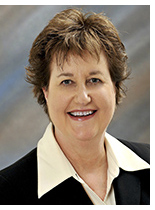Diagnostic reasoning: relationships among expertise, accuracy, and ways that nurse practitioner students self-explain. Journal Article
Local Library Link: Find It @ Loyola
| Authors: | Burt, L; Finnegan, L; Schwartz, A; Corte, C; Quinn, L; Clark, L; Corbridge, S |
| Article Title: | Diagnostic reasoning: relationships among expertise, accuracy, and ways that nurse practitioner students self-explain. |
| Abstract: | OBJECTIVES: To improve diagnostic ability, educators should employ multifocal strategies. One promising strategy is self-explanation, the purposeful technique of generating self-directed explanations during problem-solving. Students self-explain information in ways that range from simple restatements to multidimensional thoughts. Successful problem-solvers frequently use specific, high-quality self-explanation types. In a previous phase of research, unique ways that family nurse practitioner (NP) students self-explain during diagnostic reasoning were identified and described. This study aims to (a) explore relationships between ways of self-explaining and diagnostic accuracy levels and (b) compare differences between students of varying expertise in terms of ways of self-explaining and diagnostic accuracy levels. Identifying high-quality diagnostic reasoning self-explanation types may facilitate development of more refined self-explanation educational strategies. METHODS: Thirty-seven family NP students enrolled in the Doctor of Nursing Practice program at a large, Midwestern university diagnosed three written case studies while self-explaining. During the quantitative phase of a content analysis, associational and comparative data analysis techniques were applied. RESULTS: Expert students voiced significantly more clinical and biological inference self-explanations than did novice students. Diagnostic accuracy scores were significantly associated with biological inference scores. Clinical and biological inference scores accounted for 27% of the variance in diagnostic accuracy scores, with biological inference scores significantly influencing diagnostic accuracy scores. CONCLUSIONS: Not only were biologically focused self-explanations associated with diagnostic accuracy, but also their spoken frequency influenced levels of diagnostic accuracy. Educational curricula should support students to view patient presentations in terms of underlying biology from the onset of their education. |
| Journal Title: | Diagnosis (Berlin, Germany) |
| Publisher: | Unknown |
| Date Published: | 2021 |
LUC Authors
-
 16
16Finnegan
Related LUC Article
